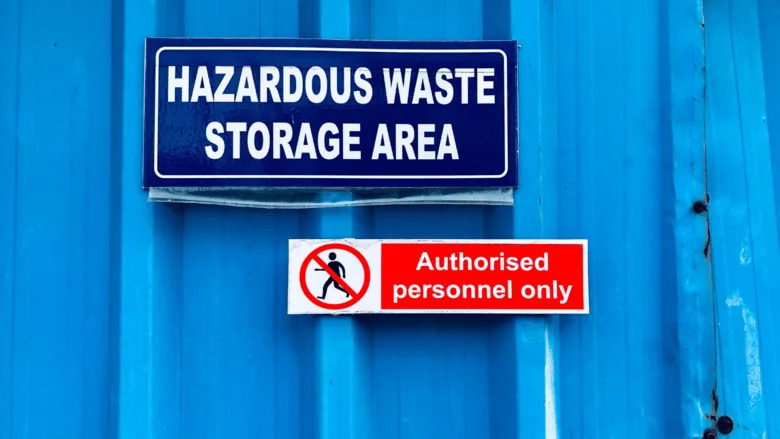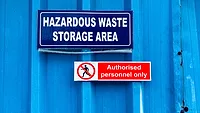Rethink How You Handle Hazardous Waste
That's what the EPA is telling small businesses.

Image via Joe Ponato from Getty Images Signature
If you run a small business, school, clinic, or even a repair shop, the U.S. Environmental Protection Agency (EPA) has a heads-up for you: you might be creating more hazardous waste than you think — and missing some important rules in the process.
Across New York, New Jersey, Puerto Rico, and the U.S. Virgin Islands, EPA Region 2 has seen a pattern. Many smaller facilities are accidentally breaking federal hazardous waste laws, often without even realizing it. One common slip-up? Shipping regulated amounts of hazardous waste without first getting an EPA identification number.
“Most of the time, these violations happen because people just don’t know the rules,” said EPA Regional Administrator Michael Martucci. “Our goal isn’t to punish businesses — it’s to help them understand what’s required so they can keep their workers and communities safe.”
To make things easier, the EPA is working directly with businesses through something called Expedited Settlement Agreements, or ESAs. It’s a quicker, less painful way to fix mistakes and get back on track without hefty penalties.
So, who needs to pay attention? Pretty much anyone handling stuff like used paint, solvents, expired chemicals, or waste from labs, medical offices, or even school art rooms. If your facility creates more than 220 pounds of hazardous waste in a month (that’s about the weight of a refrigerator), you’re expected to notify the EPA and follow stricter rules.
Even if you’re under that threshold, there are still requirements to meet — and the EPA wants you to know exactly what those are.
Here’s what they suggest:
Track how much hazardous waste you’re generating each month
If you cross the 220-pound mark, apply for an EPA ID number using Form 8700-12
Make sure your waste is labeled, stored, and disposed of the right way
Check out EPA’s online tools and guidance to stay up to date
“Bottom line,” Martucci said, “we want to help you get it right. Because when you do, everyone benefits — your staff, your customers, and the environment.”
If you’re unsure about your facility’s status or need help getting compliant, you can reach out to EPA representative Stephen McBay at mcbay.stephen@epa.gov or call 929-243-0417.
Looking for a reprint of this article?
From high-res PDFs to custom plaques, order your copy today!






